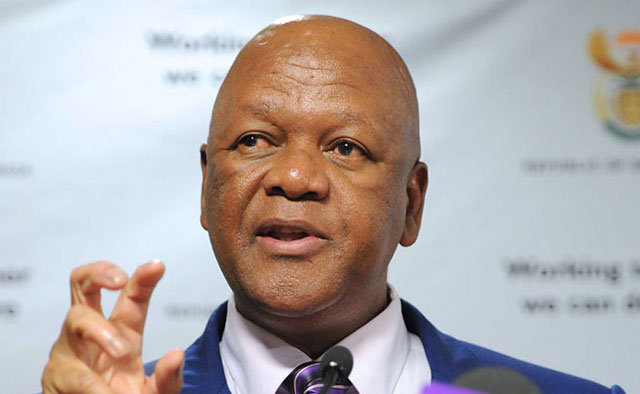
Government is satisfied that it’s doing enough to unblock the constraints to economic growth, said minister for planning, monitoring & evaluation Jeff Radebe.
Briefing the media on the outcomes of a cabinet meeting held on Wednesday, Radebe said the interventions in agriculture, transport, electricity and mining would address the negative growth these sectors experienced during the first quarter of 2016.
Statistics South Africa released the quarterly GDP figures yesterday, confirming reservations around the country’s ability to grow the economy. Mining output contracted by 18,1%, while agriculture came in at -6,5%, having declined for five consecutive quarters. Overall, the economy shrank by 1,2% in the first three months of 2016.
Radebe said government will in the foreseeable future unveil the decisions taken at last year’s Mining Phakisa — a meeting held in October last year between labour, government and stakeholders in the extractive industry.
“Government has had meetings with stakeholders to implement the recommendations flowing from the Phakisa and there’s broad consensus on the programme of action,” Radebe said.
Radebe said the decision by ratings agencies Standard & Poor’s (S&P) and Fitch to keep South Africa’s credit rating unchanged, “affirmed the continuing work by government to turn the economy around”.
“The dedicated work of Team South Africa (government, business and labour) is ensuring that South Africa avoids a junk status rating,” Radebe added.
On Friday, S&P kept its outlook for South Africa unchanged at BBB- with a negative outlook, but warned that serious economic reforms should take place if the country wants to avoid a downgrade to junk status by December.
Fitch’s decision on Tuesday to also keep South Africa’s outlook unchanged at BBB- with a stable outlook, gave the country a breather, but economists warned that hard work lies ahead if a ratings downgrade is to be averted towards the end of the year.
Notwithstanding the Democratic Alliance’s petition to President Jacob Zuma to refer the expropriation bill back to parliament, Radebe said the bill provides “legal certainty”, as it defines the “administratively just process” that needs to be followed for expropriation to take place.
“It also sets out the rules by which government can lay claim to land ‘in the public interest’ and ‘for public purposes’,” Radebe said.
The DA, on the other hand, views the bill in its current form as unconstitutional, specifically in respect of the right to property and the right not to be evicted without an order of the court.
“If the president is at all serious about the constitution in general and property rights in particular, he will not sign the bill,” the DA said in a statement earlier.




